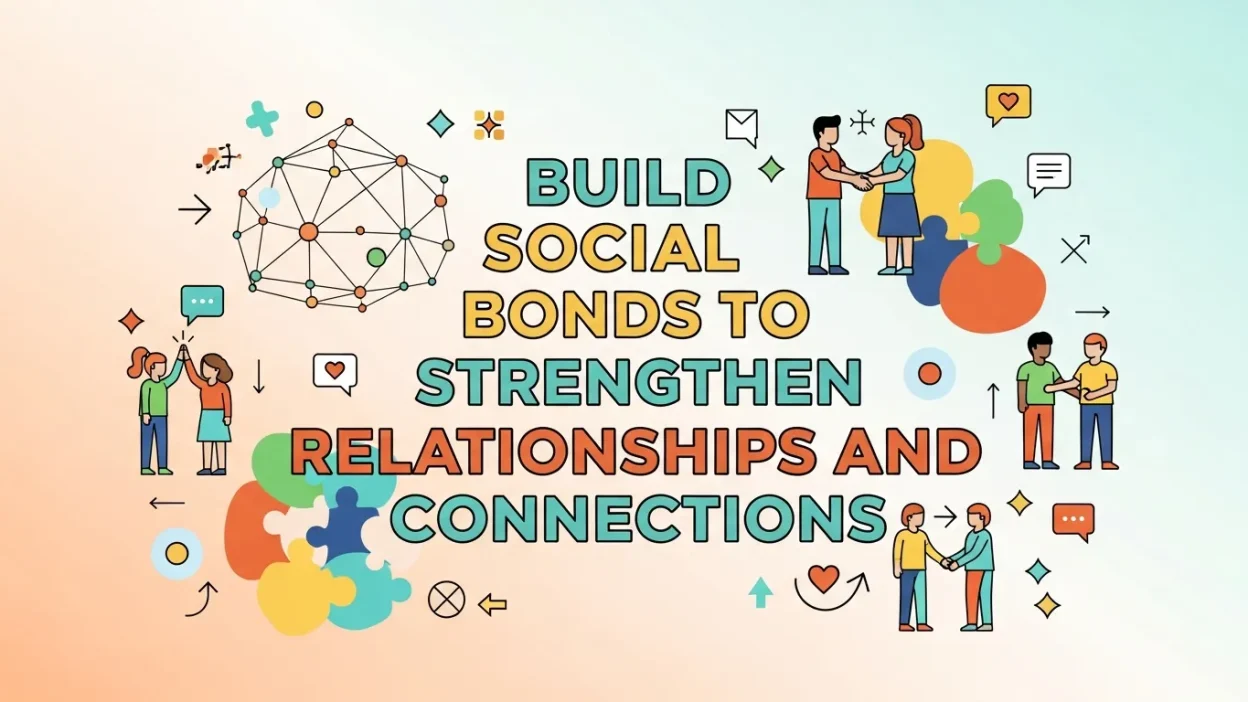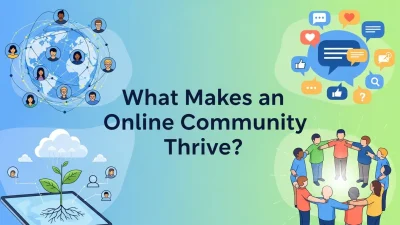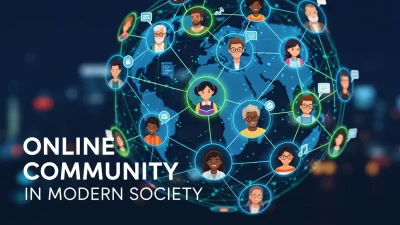Building social bonds is essential for creating meaningful, lasting relationships across personal, professional, and community settings. To build social bond effectively, strong connections must be formed through trust, effective communication, empathy, and shared values. When nurtured intentionally, these bonds provide emotional support, foster cooperation, strengthen resilience, and create a sense of belonging. By practicing consistency, active listening, mutual understanding, and shared experiences, individuals can build social bond that thrives over time, contributing to stronger communities, teams, and personal well-being.
Human connections are the foundation of thriving societies. From family relationships to friendships and professional collaborations, strong social bond create the support and trust necessary for personal and collective growth. But what makes some relationships so resilient and fulfilling while others falter? The answer lies in four crucial elements that, when nurtured, form the backbone of meaningful connections.
What is a social bond?
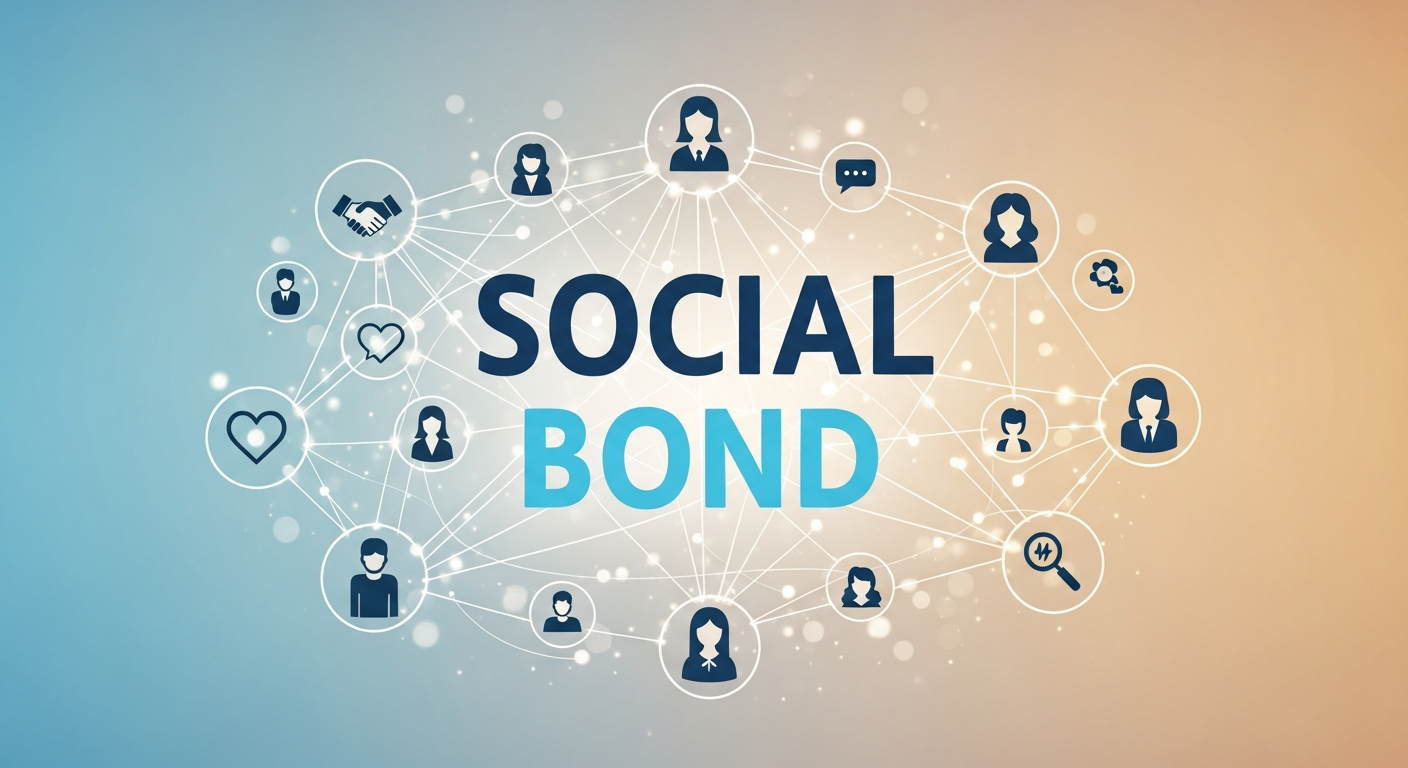
A social bond is a connection or relationship that brings people together and strengthens their sense of belonging. These bonds are built on trust, care, respect, and shared values or experiences, forming the foundation for meaningful interactions. Social bonds can develop in various settings—within families, among friends, in workplaces, or across communities—and play a crucial role in creating supportive networks.
Strong social bonds not only provide emotional support and reduce feelings of isolation, but they also encourage cooperation, collaboration, and mutual understanding. They help individuals navigate challenges, reinforce positive behavior, and foster resilience during difficult times. In communities, these bonds promote social cohesion, enabling groups to work together toward common goals and maintain harmony.
In essence, social bonds act as the glue that holds relationships and communities together, strengthening both individual well-being and collective stability. They are essential for personal growth, social trust, and the overall health of society.
How do you build social bonds?
Building social bonds is essential for creating meaningful connections in both personal and professional life. Strong relationships are built on trust, communication, empathy, and shared experiences. When you intentionally take steps to build social bonds, you foster a sense of belonging, collaboration, and Mutual Understanding that lasts.
1. Trust and Reliability
At the heart of any strong relationship is trust. It’s the glue that keeps people connected, even when circumstances are challenging. Trust is built over time through consistent actions, honesty, and the ability to rely on one another.
How to Build Trust:
- Be Consistent: Follow through on promises, no matter how small. Consistency shows others that they can depend on you.
- Practice Openness: Share your thoughts, feelings, and intentions openly. Transparency encourages mutual respect and understanding.
- Admit Mistakes: Nobody is perfect. Owning up to your mistakes builds credibility and demonstrates accountability.
Example: Think about your closest friendships. Chances are, they exist because you trust one another to show up in times of need, offer honesty, and maintain dependability. Without trust, even the most exciting friendships tend to fizzle out when tested.
Why It Matters:
Trust not only cements existing relationships but also enhances collaboration and reduces conflict in professional and social environments. A workplace team, for example, thrives when members feel secure in relying on one another to meet deadlines and deliver quality work.
2. Effective Communication
Communication is more than simply talking; it’s about understanding and being understood. Whether spoken, written, or expressed through actions, effective communication ensures that all parties feel valued and heard.
Key Practices for Better Communication:
- Practice Active Listening: Give your full attention, make eye contact, and avoid interrupting while the other person speaks.
- Express Empathy: Acknowledge the other person’s feelings through validating statements like, “I understand why you’d feel that way.”
- Clarify and Summarize: Make sure both parties leave a conversation with the same understanding by summarizing key points.
Example: Effective communication plays a vital role in resolving conflicts. Imagine a misunderstanding with a close friend. By actively listening to their concerns, clarifying your intentions, and responding thoughtfully, you can prevent the situation from escalating further.
Why It Matters:
Good communication reduces misinterpretations, strengthens emotional intimacy, and helps resolve conflicts gracefully. Whether in families, friendships, or business partnerships, communication lays the foundation for stronger relationships.
3. Empathy and Emotional Support
Empathy is the ability to understand and share the feelings of someone else. It goes hand-in-hand with providing emotional support and is central to building strong bonds.
How to Demonstrate Empathy:
- Put Yourself in Their Shoes: Consider how you’d feel in the other person’s situation and respond accordingly.
- Validate Their Experiences: Simple phrases like “That sounds really challenging” can go a long way in making someone feel understood.
- Be Present: Sometimes, being there for someone without trying to “fix” their problem is the best way to show empathy.
Importance of Emotional Support:
When individuals feel understood and supported, they are more likely to reciprocate that care, strengthening the relationship further. Additionally, emotional support is a proven buffer against stress, making it crucial for mental wellness.
Example: Consider a colleague going through a difficult time. Taking a few moments to hear them out without rushing to solutions shows empathy and reinforces trust in your professional bond.
4. Shared Values and Experiences
Shared values and experiences act as bonding agents, giving people a sense of mutual understanding and purpose in their relationships.
Building a Foundation of Shared Values:
- Identify Common Interests: Whether it’s a passion for sports, art, or a business goal, focus on shared hobbies to strengthen your connection.
- Discuss Important Beliefs: Openly talk about personal values to see where your perspectives align.
- Create New Experiences Together: Shared memories help deepen relationships over time.
Why It Matters:
Sharing experiences creates memories and strengthens the emotional ties in relationships. For example, a family vacation or completing a challenging project as a team can act as a foundation on which to build even stronger future interactions.
Example: This is particularly evident in parent-child relationships, where shared activities like sports or cooking help fortify bonds while teaching important life lessons.
Key Elements to Build Social Bond
To Build Social Bond, relationships must focus on four essential elements: trust, effective communication, empathy, and shared values. These elements create strong connections that endure challenges and encourage collaboration.
Core elements include:
- Trust and Reliability: Dependability and honesty form the backbone of any lasting relationship.
- Effective Communication: Active listening and empathy ensure that everyone feels heard and understood.
- Empathy and Emotional Support: Understanding others’ emotions strengthens bonds and fosters mutual care.
- Shared Values and Experiences: Common interests and shared activities deepen connections over time.
Focusing on these elements helps individuals create meaningful personal, professional, and community relationships that last.
Applying the Elements of Social Bond in Different Areas of Life
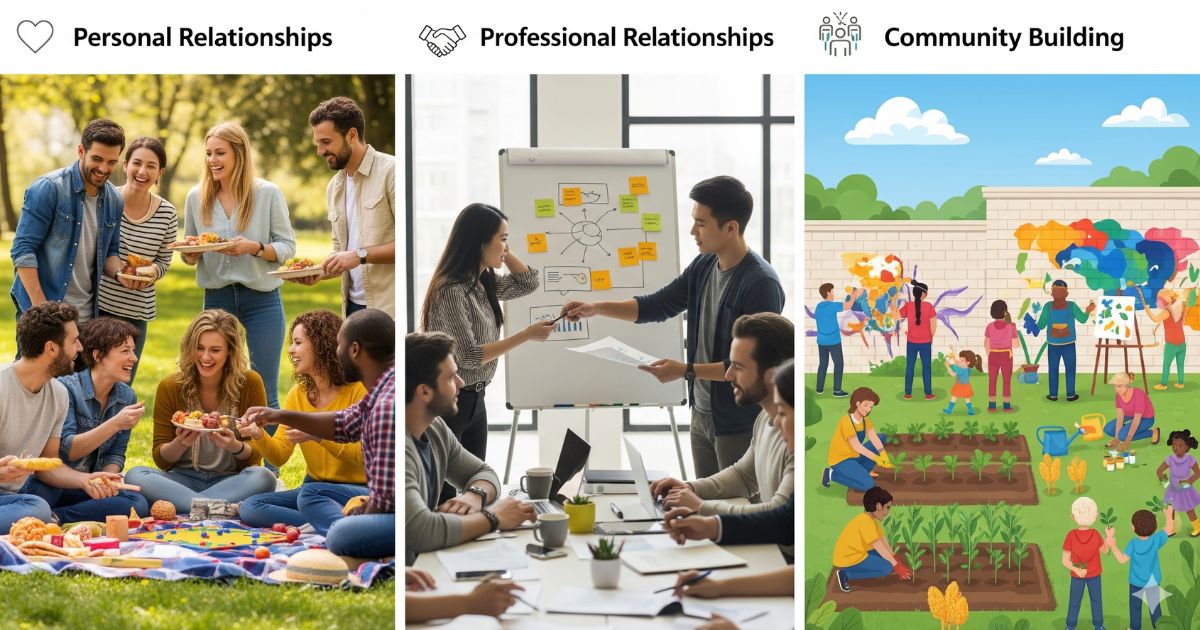
Personal Relationships:
- Build intimacy by practicing trust through dependable actions.
- Engage in open communication to make loved ones feel valued.
- Demonstrate empathy by being attentive to emotions during personal challenges.
Professional Relationships:
- Cultivate teamwork by creating space for effective communication and collaboration.
- Respect varying viewpoints while aligning on shared business values.
- Celebrate collective achievements to strengthen the bond within the team.
Community Building:
- Foster trust within your community by being a reliable and supportive presence.
- Leverage shared experiences to bring people closer together, such as volunteering or local events.
- Encourage an environment where everyone feels heard and valued.
Through intentional practice of these four key elements, anyone can foster valuable and lasting relationships across all areas of their life. Learn more Micro-Communities Are Shaping the Future of Social Connection
Best Practices to Build Social Bond
Building social bonds isn’t accidental—it requires consistent effort and intentional action. Practical strategies include:
- Be Consistent and Reliable: Follow through on commitments and show dependability.
- Practice Active Listening: Pay full attention, validate emotions, and clarify understanding.
- Demonstrate Empathy: Support others without judgment and recognize their experiences.Strengthen Your Bonds Today
- Identify Shared Values: Discuss beliefs, interests, and goals to find alignment.
- Create Shared Experiences: Participate in activities together to strengthen connections.
When these practices are applied consistently, they help people build strong, resilient relationships that thrive across different contexts.
Build Social Bond
| Element | Purpose | Practical Actions |
|---|---|---|
| Trust & Reliability | Create dependable connections | Follow through, be transparent, admit mistakes |
| Effective Communication | Ensure understanding and connection | Active listening, empathy, clarify key points |
| Empathy & Emotional Support | Strengthen emotional ties | Validate feelings, be present, offer support |
| Shared Values & Experiences | Deepen mutual understanding | Discuss beliefs, share hobbies, create memories |
This table provides a quick reference for the key pillars to Build Social Bond, applicable in personal, professional, and community settings.
Strengthen Your Bonds Today
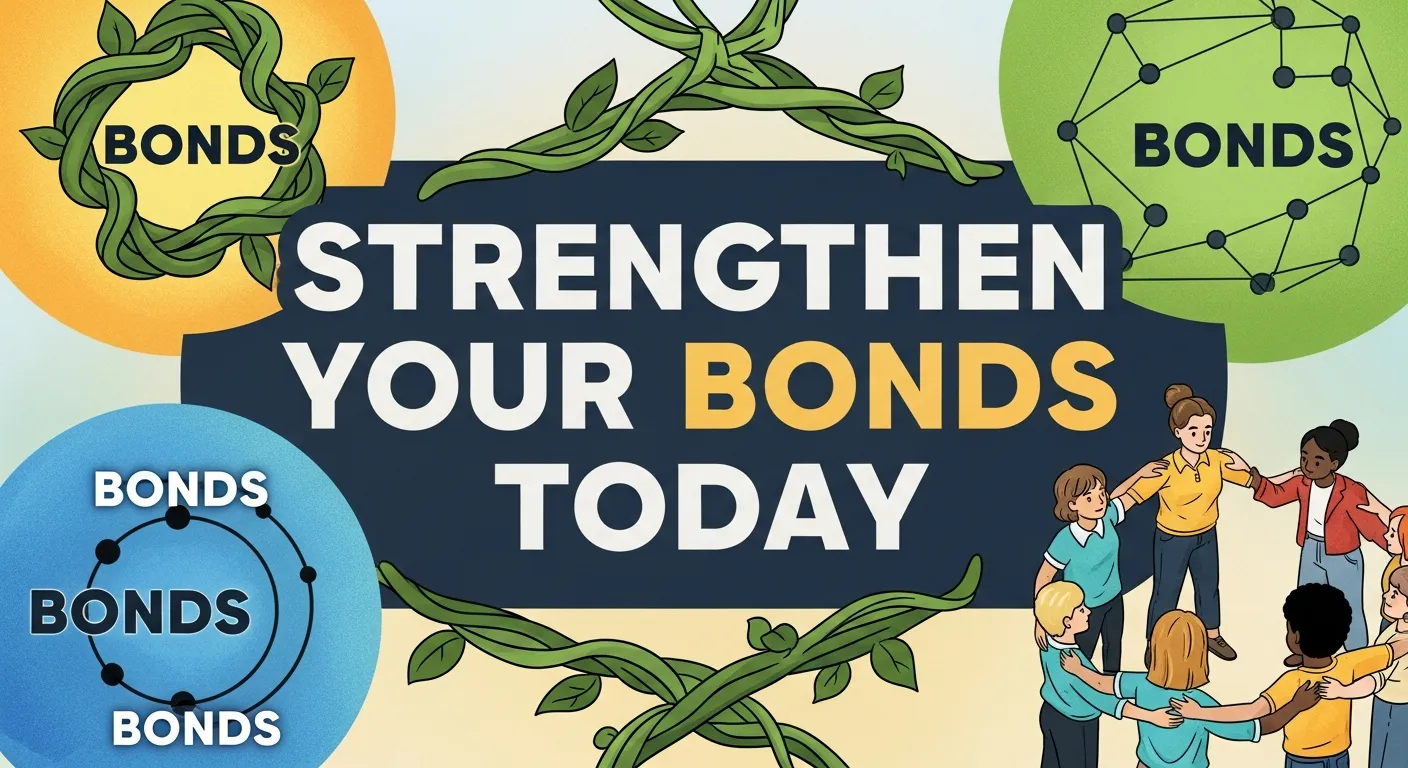
Strong social bonds aren’t just the backbone of healthy relationships—they form the very fabric of thriving communities, successful teams, and resilient networks. By prioritizing trust, communication, empathy, and shared values, you can build connections that enrich lives, foster cooperation, and endure the test of time.
Start strengthening your social bonds today. Whether it’s reconnecting with an old friend, having an open and honest conversation, participating in community activities, or joining a local group, even small, consistent actions can have a meaningful impact. Relationships flourish when social bonds are nurtured intentionally, creating lasting support systems and a sense of belonging for everyone involved.
Conclusion: Build Social Bond
To Build Social Bond, relationships must be intentional and supported by consistent effort. Whether in family life, friendships, workplaces, or community groups, strong bonds enhance collaboration, reduce conflict, and provide a foundation for personal and collective growth. Prioritizing trust, empathy, communication, and shared values ensures relationships remain resilient and fulfilling. Start small—reach out, listen, share, and engage—and watch your social bonds grow into reliable, supportive networks that endure challenges and enrich lives.
FAQs: Build Social Bond (12)
1. What does it mean to build a social bond?
Building a social bond means creating a strong, meaningful connection with others that is based on trust, effective communication, empathy, and shared values. It involves nurturing relationships over time, actively engaging with others, and forming a sense of mutual understanding and support.
2. Why is it important to build social bonds?
Social bonds are crucial because they provide emotional support, foster cooperation, reduce feelings of isolation, and enhance resilience. Strong bonds benefit personal growth, professional collaboration, and community cohesion, helping individuals and groups navigate challenges more effectively.
3. What are the key elements to build social bonds?
The four essential elements to build social bonds are: trust, which establishes reliability; effective communication, which ensures understanding; empathy, which fosters emotional connection; and shared values and experiences, which create common ground and strengthen relationships.
4. How can trust help build social bonds?
Trust allows individuals to rely on one another, feel secure, and develop long-lasting connections. When people know they can depend on others’ honesty, integrity, and support, relationships become more resilient and cooperative, whether in personal life or professional settings.
5. What role does communication play in building social bonds?
Communication is the bridge that connects people. Clear, open, and empathetic communication reduces misunderstandings, strengthens emotional intimacy, and enables collaborative problem-solving. It ensures that everyone feels heard, valued, and understood in a relationship.
6. How does empathy strengthen social bonds?
Empathy allows individuals to understand and share the feelings of others. By validating emotions and offering support without judgment, empathy builds trust, encourages reciprocity, and deepens emotional connections, making relationships stronger and more meaningful.
7. Why are shared values and experiences important for social bonds?
Shared values and experiences create common ground, build mutual understanding, and provide a sense of belonging. Participating in shared activities, discussing beliefs, or working toward common goals strengthens connections and forms lasting memories that bind individuals together.
8. Can social bonds be built in professional settings?
Yes. In professional settings, social bonds enhance teamwork, collaboration, mentorship, and productivity. Strong workplace relationships promote trust, knowledge sharing, conflict resolution, and a positive organizational culture that benefits both individuals and teams.
9. How do social bonds benefit communities?
Strong social bonds foster social cohesion, collective cooperation, and a sense of belonging. Communities with well-connected members are better equipped to support each other, mobilize for shared goals, maintain harmony, and create inclusive environments that thrive over time.
10. What challenges might prevent building social bonds?
Several factors can hinder building social bonds, including lack of trust, poor communication, limited empathy, misaligned values, and inconsistent engagement. External factors such as social isolation, cultural differences, or high-stress environments can also weaken relationships.
11. How can I strengthen existing social bonds?
Existing social bonds can be strengthened by consistently demonstrating reliability, actively listening, offering emotional support, and engaging in shared activities. Small, meaningful actions—like checking in on someone or participating in collaborative projects—reinforce trust and connection over time.
12. What practical steps help to build social bonds?
To build social bonds effectively: identify and focus on shared values, maintain open and honest communication, practice empathy, create shared experiences or memories, and be consistent in your actions. Applying these steps intentionally helps relationships thrive in personal, professional, and community contexts.


